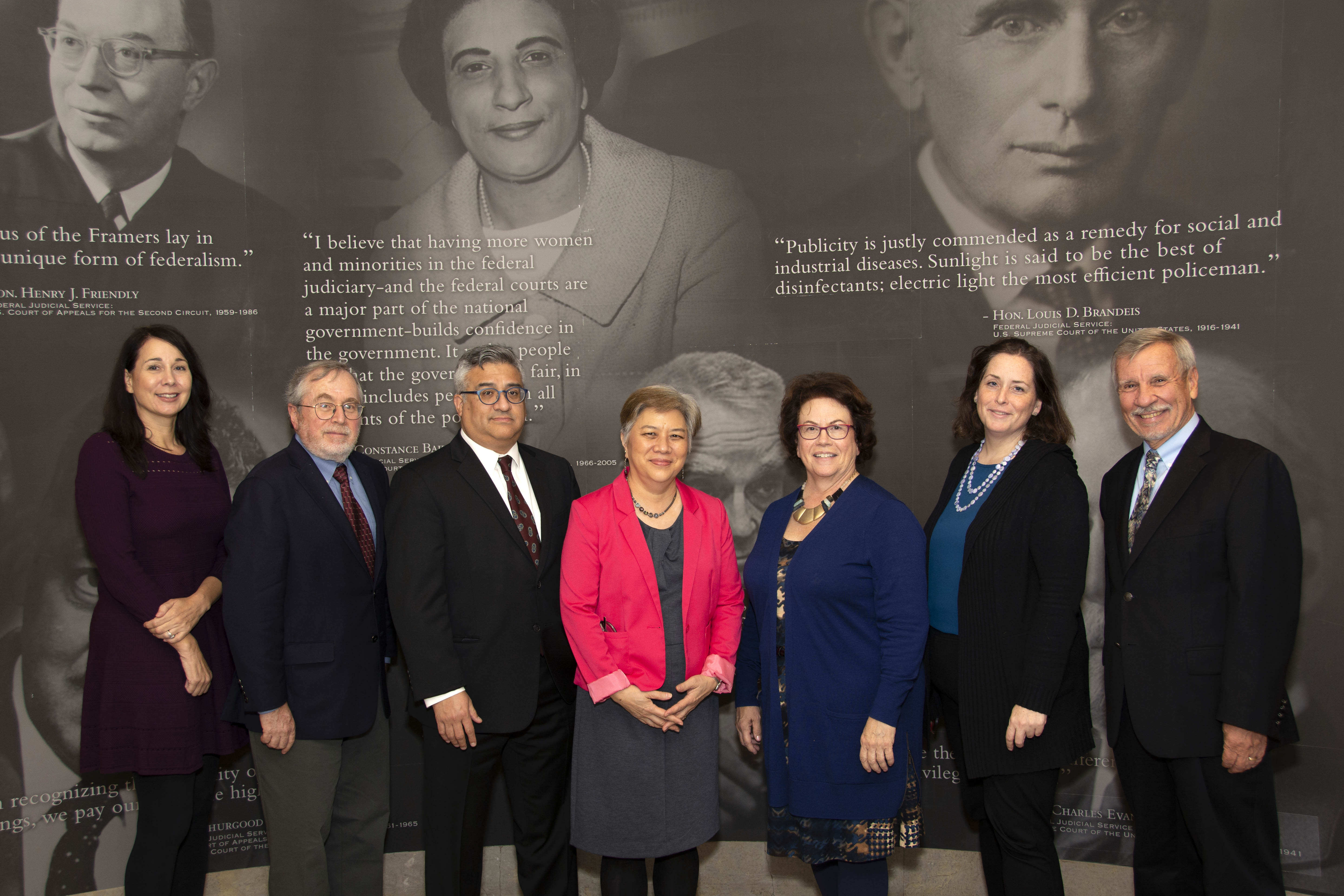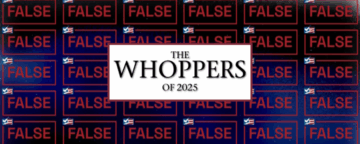Federal judges and court staff from Maine to Guam met in October for the first National Conference on Civic Education and the Federal Courts, which was co-sponsored by the Annenberg Public Policy Center.
The one-day conference, held Oct. 31, 2019, at the Thurgood Marshall U.S. Courthouse in New York, looked at how the federal judiciary could enhance and expand its civics education initiatives and start new ones in communities across the nation.
Convened by Chief Judge Robert A. Katzmann of the U.S. Court of Appeals for the Second Circuit, the meeting explored ways that the federal court system could help advance better understanding of the judicial system, further civics knowledge, and restore civility in public life.
In its 2019 Civics Knowledge Survey, the Annenberg Public Policy Center (APPC) found that just 2 in 5 Americans can name the three branches of government while 1 in 5 cannot name any. In a series of questions on the judiciary, APPC found that while most U.S. adults trust the Supreme Court, more than half of them feel that the court “gets too mixed up in politics.” The survey findings suggested that public perceptions of judges and elected politicians have become blurred.

Katzmann led a discussion with Supreme Court Associate Justices Neil Gorsuch and Sonia Sotomayor, who spoke via live videoconference. “I think we are facing a crisis,” Gorsuch told the courthouse crowd, according to law.com. “We have lost the art of how to talk to one another.”
Sotomayor noted that over time civics education has been de-emphasized in favor of STEM courses, those dedicated to science, technology, engineering, and math, according to law.com. But the justice said that if people don’t understand the laws that affect their daily lives and don’t understand that “they can have a voice in changing those laws when they don’t work, then we’re not going to be able to keep our republic.”
The program looked at the multiple programs and environments where court leaders and educators could make a difference among students, teachers, and adults, from courthouse visits to courts to community events, court camps and mock trials. The participants talked about their programs that apply landmark cases to topics relevant to teens today and about educating adults through community colleges and speakers bureaus.
“Over the past 20 years, federal courts have established a corps of judges and volunteer lawyers who have been active in using innovative programs and resources in courtrooms and classroom,” said Rebecca Fanning, national educational outreach manager for the federal courts. “We are ready to take our work to the next level.”
“What we hope to do is create a mechanism for ongoing discussion and activity,” Katzmann said. “We think of today as just the beginning.”
The civics education conference was co-sponsored by the Administrative Office of the U.S. Courts and APPC. APPC seeks to enhance civics education through Annenberg Classroom, which offers free classroom resources for teaching the Constitution, and through the Civics Renewal Network, a coalition of more than 30 nonpartisan, nonprofit organizations working to raise the visibility of civics by providing free high-quality resources for teachers of all grade levels.
The policy center was represented by Ellen Iwamoto, who directs civics programs. Others organizations represented from the Civics Renewal Network included the Constitutional Rights Foundation, Street Law, the American Bar Association, iCivics, and the National Constitution Center.


